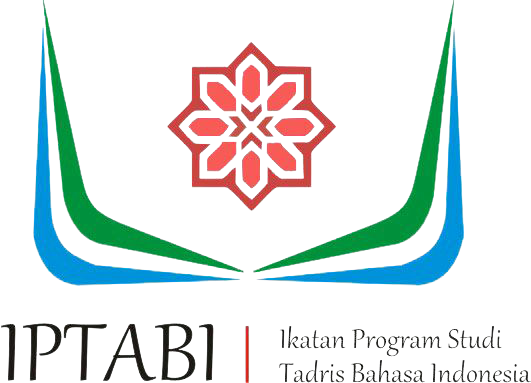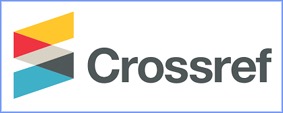Persepsi Guru terhadap Penerapan KTSP dan Kurikulum 2013 dalam Mata Pelajaran Bahasa Indonesia
DOI:
https://doi.org/10.29240/estetik.v2i01.896Abstract
Abstract: This study is motivated by curriculum changes from KTSP to 2013 Curriculum giving different assumptions for each teacher who implements them because there are many differences in the KTSP and Curriculum from the two curricula, starting from the planning, implementation, understanding and response of students. and its assessment. The purpose of this study is to find a clear picture of: 1) teacher perceptions of the application of KTSP in Indonesian language subjects, 2) teacher perceptions of the application of 2013 curriculum in Indonesian language subjects, 3) differences in the application of 2013 KTSP and Curriculum in Indonesian subjects , 4) the most effective curriculum used.
This research is a field research which describes / explains word by word descriptively using a qualitative approach. The informants in this study were grade IV teachers. The data source used is primary data by conducting interviews with class IV teachers; and secondary data sources obtained from the internet or books. Data are analyzed by: data collection, data reduction, data presentation, and conclusion drawing.
The results showed that teachers' perceptions of the application of KTSP and Curriculum 2013 in Indonesian subjects differed between class IV A teachers and class IV B teachers both in terms of planning, implementation, understanding and response of students and their assessments such as planning using methods that different in the implementation of Indonesian language subjects, Indonesian language learning taught separately in KTSP and using themes in Curriculum 2013, KTSP assessment which focuses on the cognitive realm makes children's understanding of knowledge higher, while the 2013 Curriculum assessment which focuses on the realm affective which emphasizes the character of children in school. The differences in the application of KTSP and Curriculum 2013 in Indonesian language subjects found based on the results of the interviews are outlined in the form of Table.4.5. There are differences in teachers' perceptions of the most effective curriculum used in accordance with the learning experiences of each grade IV teacher if the teacher uses a fun curriculum in the learning process and can increase the potential of students, the curriculum is the most effective to use.
Keywords: Perception, KTSP, Curriculum 2013, Indonesian Lang
Downloads
References
DAFTAR PUSTAKA
Arif, Memahami Pendidikan dan Ilmu Pendidikan, (Yogyakarta :Laks Bang
Mediatama, 2009)
Chaer, Abdul, Tata Bahasa Praktis Bahasa Indonesia, (Jakarta: PT Rineka Cipta, 2000)
Daryanto, dkk, Siap Menyongsong Kurikulum 2013, (Yogyakarta : Gava Media, 2014)
Hakim, Lukmanul, Perencanaan Pembelajaran, (Bandung: Bumi Rancaekek Kencana, 2012)
Harmi, Hendra, Perencanaan dan Sistem Pembelajaran Kurikulum Tingkat SatuanPendidikan (KTSP), (Curup :LP2 STAIN CURUP, 2010
Majid, Abdul, Implementasi Kurikulum 2013 Kajian Teoritis dan Praskti, (Bandung: Interes Media, 2014 )
Mulyati,Yeti dkk, Keterampilan Berbahasa Indonesia SD. (Jakarta : UniversitasTerbuka, 2009)
Ngalimun dan Noor Alfulaila, Pembelajaran Keterampilan Berbahasa Indonesia,(Yogyakarta : Aswaja Pressindo, 2014)
Priyatni, Endah Tri, Desain Pembelajaran Bahasa Indonesia dalam Kuriklum 2013, (Jakarta :Bumi Aksara, 2014
Rosdiana,Yusi, Bahasa dan Sastra Indonesia di SD, (Jakarta: Universitas Terbuka, 2011)
Sani,Ridwan abdullah, Pembelajaran Saintifik untuk Implementasi Kurikulum 2013. (Jakarta : PT Bumi Aksara, 2014)
Sarwono,Sarlito Wirawan, Pengantar Psikologi Umum, (Jakarta: PT raja Grafindo Persada, 2013)
Sugiyono, Memahami Penelitian Kualitatif. (Bandung: Alfabeta, 2012)
Suharso dkk, Kamus Besar Bahasa Indonesia, (Semarang: Widya Karya, 2012)
Suyadi, Strategi Pembelajaran Pendidikan Karakter, (Bandung :PT Remaja
Rosdakarya, 2013)
Tukiran, Tanireja dkk, Penelitian Tindakan Kelas untuk Pengembangan Profesi Guru, (Bandung : Alfabeta, 2010)
Tohaputra, Ahmad, Al-Qur’an dan Terjemahannya (Ayat Pojok Bergaris), (Semarang :
Trianto, Desain Pengembangan Pembelajaran Tematik, (Jakarta : Kencana, 2011)
Trianto, Mendesain Model Pembelajaran Inovatif-Progresif. (Jakarta : Kencana Prenada
Dewi Sri Budi. Wawancara, Guru SDN 02 Curup
SugihRiang. Wawancara. Guru SDN 02 Curup
Downloads
Published
How to Cite
Issue
Section
Citation Check
License
Copyright (c) 2019 Ummul Khair, Dana Prasetiana

This work is licensed under a Creative Commons Attribution-NonCommercial-ShareAlike 4.0 International License.
Authors who publish with ESTETIK : Jurnal Bahasa Indonesia agree to the following terms:
- Authors retain copyright and grant the journal right of first publication with the work simultaneously licensed under a Creative Commons Attribution-NonCommercial-ShareAlike 4.0 International License (CC BY-NC-SA 4.0) that allows others to share the work with an acknowledgment of the work's authorship and initial publication in this journal.
- Authors are able to enter into separate, additional contractual arrangements for the non-exclusive distribution of the journal's published version of the work (e.g., post it to an institutional repository or publish it in a book), with an acknowledgment of its initial publication in this journal.
- Authors are permitted and encouraged to post their work online (e.g., in institutional repositories or on their website) prior to and during the submission process, as it can lead to productive exchanges, as well as earlier and greater citation of published work (See The Effect of Open Access).






